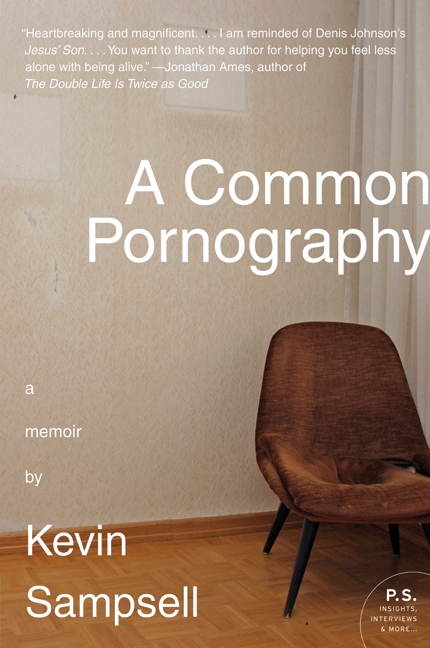Connectivity in Lynch: Michal Ajvaz’s The Other City
[This post originally appeared on my personal blog last year. In light of a new audience, and a new book from Ajvaz forthcoming on Dalkey in a few months, The Golden Age, I’ve reupped it here. Thanks! BB]
The signs of connective tissue in the films of David Lynch are in places very clear. Beyond Lynch’s own mentioning of the mesh of words, most vocally between Mulhollland Drive and INLAND EMPIRE, but also, I would insist, between all the films, in many ways the blank or horrendous spaces that make the films seem the most ‘underneath the viewer’s skin’ are the creation of the space itself, a portal both from film to film, as well as, I must demand, into human.
The rips in spaces in Lynch are all throughout, and in many ways, the definitive space of Lynch: the totem-being behind Winky’s, Club Silencio, the Black Lodge, the pink house on the sound stage and the ‘other version’ of Hollywood & Vine in INLAND EMPIRE, the Rabbits, Ben’s house in Blue Velvet, the exploding shed in Lost Highway, perhaps the entire terrain of Eraserhead, etc., etc. You could list these rooms forever.
You could also list, in your own life, the spaces of your mind that are contained in memory or in associative practice: sleep rooms, childhood slurrings, ruined pictures, unrecorded thoughts, most any second mostly. That you could also not truly make this list is important too, as here is an example, in Lynch’s hands, perhaps, of what occurs in evidence of the reckoning:

[Watch the whole scene here]
Kevin Sampsell Week (2): Smorgasboard
For day 2 of Kevin Sampsell week, I’d like to collect some various KS/A Common Pornography pornographalia from around the web and elsewhere. Below you’ll find some video, some review snippets, another excerpt from the memoir, and everything else to keep your Sampsell buzz afloat. If this turns out to be not enough, you can always peruse Kevin’s website, a free-flowing form of fun and e-orgasm. Hit it!
Kevin reads from ACP at the In The Flesh Reading Series 2-18-10
***** 5 Star review for ACP from Time Out New York: “…Sampsell shares loneliness with such intensity that his book almost defeats it—both his and yours.”
– A Sampsell short story (not in the memoir) from 52 Stories, “Jailbreak.”
Pillow Talk Episode 1: Kevin interviews our own Mike Young (produced & edited by Bryan Coffelt)
– A review of ACP on Blogcritics: “… The structure of A Common Pornography is narrative genius.”
…. and, lastly, for today, pg. 75 of A Common Pornography:
Dad gave me a vibrator once. Sort of oval-shaped. He gave it to me so I could wrap it and give it to Mom as a birthday present. Later, they kept it in a drawer by the bed. Then, shortly after, they slept in separate beds.
NYC Area Alert Quad-shot:
First off, rival readings on Friday the 26th: Celebrate the fifth anniversary of Earshot!, the venerable series hosted by Nicole Steinberg. The reading will feature my buddy Jeff Johnson, Kate Greenstreet, Jennifer Firestone, Megan Williams, and Margarita Delcheva. It’s in Williamsburg, BK. Directions here. That same night, over at Housing Works Bookstore Cafe, Joanna Smith Rakoff will mark the paperback release of her novel, A Fortunate Age (NYT Editors’ pick; IndieNext pick; B&N First Look Club; SFChronicle best-seller–wow, not bad, right?) with a little help from the M Shanghai String Band and something called the Story Pirates. Also, JSR will be reading with yours truly at Oblong Books in Rhinebeck, NY on March 11. Yes, that one banner thing says the 13th, but don’t believe it. All the other stuff says the 11th, which is a Thursday. But in between the 26th and the 11th is March 4th, which is the day of the 2nd annual Canteen magazine gala fundraiser, which is offering some seriously schmancy good-times. Tickets are on a sliding scale, beginning at $75 and going as high as $1000+. These guys are emphatically not screwing around. Just for showing up you get cocktails and hors d’oeuvres from a Michelin-starred chef, recognition on the Canteen donor page, a copy of the magazine, and your literary fortune told by Porochista Khakpour and, um, me. Higher-level donors can get–among other things–a cocktails class with a mixologist from Per Se, a private tour of “a major museum collection” led by Arnold Lehman, the director of The Brooklyn Museum and also, the host of the event (it’s being held at his house). So if you’re up for feeling like part of High Society (don’t click that- nsfw), you can buy a ticket here (click this- it’s totally sfw).
The 2nd edition of our Live Giants live online reading series, originally scheduled for tomorrow with the inestimable Dorothea Lasky, has unfortunately needed to be pushed back due to some personal constraints. Instead, Dottie will be reading here, live on the site, next Wednesday 3/3 at 9 PM. Please update your personal reminder devices accordingly. Those who have seen Dottie read know that this is not to be missed. In the meantime, you can use this leeway space to, if you happened to have not, acquaint yourself with Dottie’s AWE, truly one of the most fun and heartraw books of poems I’ve read in a long time, or to get excited for her soon forthcoming second book, also from Wave Books, the excellently titled Black Life. I’ve already begun digging in, and let me tell you: hold onto your head. See you next Wednesday!
It is Tuesday and We Love Ourselves and, Hey, Why Shouldn’t We?
 I was just mucking around in the GIANT stats and noticed something wild- on 2/21 lightning hit our transmitter and HTMLGiant had a huge 18,501 unique visitors. That means that yesterday was in striking-distance of the site’s all-time high, which was December 4, 2009 when every single person in the world (or, rather, 20,249 people in the world) decided they wanted in on the DFW Grammar Challenge (part 2, part 3). So what was it that brought the teeming hordes back over our way? Was it Jeremy Schmall’s poems? Was it Amy again? Was it my post of Harold Bloom reciting a Stevens poem? Actually, it was Jimmy Chen’s “illustrated account of Tom Wolfe’s wardrobe on the Charlie Rose show.” The post went up on the 16th, but the 21st was the day that Andrew Sullivan linked it from his blog, describing it to his readers as “brilliant.” So kudos & salutes to Jimmy, and Andrew, if you’re reading this–thanks! I’m a regular reader of yours already, and it’s very gratifying to know you’ve got an eye on us. Cheers, all!
I was just mucking around in the GIANT stats and noticed something wild- on 2/21 lightning hit our transmitter and HTMLGiant had a huge 18,501 unique visitors. That means that yesterday was in striking-distance of the site’s all-time high, which was December 4, 2009 when every single person in the world (or, rather, 20,249 people in the world) decided they wanted in on the DFW Grammar Challenge (part 2, part 3). So what was it that brought the teeming hordes back over our way? Was it Jeremy Schmall’s poems? Was it Amy again? Was it my post of Harold Bloom reciting a Stevens poem? Actually, it was Jimmy Chen’s “illustrated account of Tom Wolfe’s wardrobe on the Charlie Rose show.” The post went up on the 16th, but the 21st was the day that Andrew Sullivan linked it from his blog, describing it to his readers as “brilliant.” So kudos & salutes to Jimmy, and Andrew, if you’re reading this–thanks! I’m a regular reader of yours already, and it’s very gratifying to know you’ve got an eye on us. Cheers, all!
February 23rd, 2010 / 12:04 pm
6 Things of Scin
1. Sonora Review jump-jacked their flash fiction contest deadline. It is now May 1 (Bach’s death-day). Joe Wenderoth is the final judge. It pays a cool G (or 4000 draft PBRs in little plastic cups at Egan’s, Tuscaloosa, Alabama.)
It’s dirty, it’s dark, it’s loud, and it’s VERY smoky.
2. Or: A student on Tuesday asked “Why write if you are not going to publish?” Fair enough, BUT. Have you ever played chess on a back porch? Ever swam in a river, with no intention of crossing? The discussion blossomed. Writing as enjoyable play? Period.
3. Ever lipped something 100% not yours but kick ass at a reading and told no one? Ever. It is VERY fun. Try it. (Stories welcome)
4. Lit and gaming going to keep stadium lamping/furry cheeking one another. You can feel it, prickly on your skin. If Cage is right, both about the stakes and the merits of his creation, then gaming could be about to embark on an extraordinary transition, and in 20 years’ time, the people who make these games could be as fêted and culturally imposing as Ken Loach, Zadie Smith or Simon Rattle.
5. Used to be authors could sell their “letters” and maybe retire (or at-least cash in for those final years). It was a rite of passage for the big dogs. Like a reverse-benefactor. UT is the bumbledom/fangs (they believe) of all this. But. With email, IM, vid chat, what record will exist? What letters? What drafts? DELETE. Lost pinky drive. DELETE. Maybe it’s all for the better? DELETE.
6. Here is your Meat Joy because we all like that sort of thing. Meat and Joy.
httpv://www.youtube.com/watch?v=D6AK9TI3-LU
Ten Years of The Lioness
Hey, so this year is the tenth anniversary of The Lioness, a seminal album by countryish indie-rockers Songs: Ohia, whose frontman is the estimable Jason Molina (who also fronts Magnolia Electric Co.). Molina’s best, I think, are elliptical, sinister love songs, with which he stuffed The Lioness from front to back. His songs are heavily symbolic, studded with violent images, etc.–just listen to the songs I’m posting below (but don’t watch the videos–they’re just still images of the band), won’t you?
httpv://www.youtube.com/watch?v=DXsFkRBsAF8
Vanity Fair or Unfair?
 At The Rumpus, Vanessa Garcia reviewed Kathleen Rooney’s new essay collection, For You, For You I am Trilling These Songs. Garcia’s consideration was highly ambivalent, and she ultimately rendered a verdict against. Then all hell broke loose in the comments section. Daniel Nester, Kyle Minor, Elisa Gabbert, and Tim Jones-Yelvington are just some of the local (to us here) luminaries who weighed in with complaints against the review. Rumpus Books editor Andrew Altschul has responded several times; he and Nester are particularly aggressive with each other. What makes this more interesting than a flame war is that the vitriol seems not excessive, but central and perhaps necessary, to an earnest conversation about how nonfiction–memoirs in particular–ought to be read and discussed. My one critique of said discussion is that there seems to be an undercurrent of umbrage–palpable but pointedly not articulated–at the fact of a negative review having been written at all. Critics who pan things should expect to have their prerogative cross-examined, their biases speculated upon, their motives questioned, etc.–which is not to say that Garcia’s critics are wrong, only to point out that a positive review is never reprimanded for its angle, however wrong-headed or idiotic that angle might be. If we are willing to court and accept facile praise, do we have the right to demand anything better from our detractors? (Again: not to suggest Garcia’s piece is facile, or “wrong”; having not read Rooney’s book I withhold judgment on both it and the crit of it.) Anyway, the comment-thread is still active as of this morning, and the whole thing is worth giving a look to.
At The Rumpus, Vanessa Garcia reviewed Kathleen Rooney’s new essay collection, For You, For You I am Trilling These Songs. Garcia’s consideration was highly ambivalent, and she ultimately rendered a verdict against. Then all hell broke loose in the comments section. Daniel Nester, Kyle Minor, Elisa Gabbert, and Tim Jones-Yelvington are just some of the local (to us here) luminaries who weighed in with complaints against the review. Rumpus Books editor Andrew Altschul has responded several times; he and Nester are particularly aggressive with each other. What makes this more interesting than a flame war is that the vitriol seems not excessive, but central and perhaps necessary, to an earnest conversation about how nonfiction–memoirs in particular–ought to be read and discussed. My one critique of said discussion is that there seems to be an undercurrent of umbrage–palpable but pointedly not articulated–at the fact of a negative review having been written at all. Critics who pan things should expect to have their prerogative cross-examined, their biases speculated upon, their motives questioned, etc.–which is not to say that Garcia’s critics are wrong, only to point out that a positive review is never reprimanded for its angle, however wrong-headed or idiotic that angle might be. If we are willing to court and accept facile praise, do we have the right to demand anything better from our detractors? (Again: not to suggest Garcia’s piece is facile, or “wrong”; having not read Rooney’s book I withhold judgment on both it and the crit of it.) Anyway, the comment-thread is still active as of this morning, and the whole thing is worth giving a look to.
Kevin Sampsell Week (1): Chongo
 Earlier this month saw the release of my label-brother Kevin Sampsell’s memoir A Common Pornography, which I read in the light of a late evening on a sofa I bought from a friend. I’d had big expectations and excitement about this book, which in the course of reading turned to not only the pay off of that wanting, but being stuck simultaneously by a kind of reading feeling I could have never seen coming. Herein, this week we’ll be talking about the book and other things Sampsell, including his press Future Tense Books.
Earlier this month saw the release of my label-brother Kevin Sampsell’s memoir A Common Pornography, which I read in the light of a late evening on a sofa I bought from a friend. I’d had big expectations and excitement about this book, which in the course of reading turned to not only the pay off of that wanting, but being stuck simultaneously by a kind of reading feeling I could have never seen coming. Herein, this week we’ll be talking about the book and other things Sampsell, including his press Future Tense Books.
Among the many wonderful things about this book, perhaps the most surprising and beautiful for me was how the period chronicled in Kevin’s book, essentially his youth, adolescence, into his current age, felt at some points so familiar, and at the same time catching me by the side of the head. Kevin’s rendering of the odd but somehow most defining moments of aging so often missed in these kinds of books is so well nailed–he doesn’t overdescribe them, or romanticize them, but lays them out in all their hairy light–calm, common, uncommon, etched.
From his obsessive collecting of select pieces of porn (which he keeps hidden in the ceiling of his parents house), to the strange ways of sexual becoming with friends and paid help, to just the air of those spaces and people that exist with us for a time and somehow are that time, all of this rendered in eerily calm and perfect sentences, sometimes somewhat like a minimal Gary Lutz, A Common Pornography is a book I will long remember for its poise, heart, and humor, and for its making of a picture of an age that no one else has nailed quite so beautifully, and singularly.
The book is made up of many 1-3 page sections, each with titles, that together follow the timeline of Kevin’s life, each of which alone makes for its own little amazing object. Here’s one to whet your bib.
The toughest kid at our school was named Chongo, and he was a short but muscular Mexican who always seemed to be suspended or doing Saturday school. He lived in the pit of this valley that ran alongside a long irrigation pipe. The pipe was connected to the ditches surrounding our neighborhood and it had a flat surface on top lined with flimsy two-by-fours. For some reason, we always called this pipe “the floons.” My friends and I would often have races on the floons. There was an element of danger whenever we did because there were big gaps where you could fall through and go into the dirty water. And if we went too far down the floons we’d be dangerously close to what we called “Chongo Country.” Other kids had told us that if you got a good look into Chongo Country, you’d see all sorts of stolen bikes and bike parts in his weed-filled yard. When Chongo had his shirt off, they said, you could see a tattoo of Pontius Pilate across his chest. We never dared to look.
Purchase A Common Pornography at the links above, or from the publisher, or Amazon.
